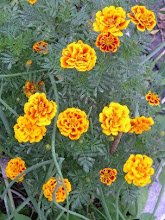 Because I've alluded to A.S. Byatt's latest novel, The Children's Book, in a couple of earlier posts on this blog, here and here, I feel I should perhaps provide a little more information, in case any readers might want to check it out themselves. Her 1990 novel, Possession, was hugely popular in both England and America, and won the prestigious Man Booker prize that year. My partner and I were running a women's guest house in North Truro, on Cape Cod at that time, and for a couple of years I found Possession in every room I went into to tidy or turn over. I didn't have time then to read such a large novel while working all the time (the way one does when one owns a guest house), but did finally take it on later.
Because I've alluded to A.S. Byatt's latest novel, The Children's Book, in a couple of earlier posts on this blog, here and here, I feel I should perhaps provide a little more information, in case any readers might want to check it out themselves. Her 1990 novel, Possession, was hugely popular in both England and America, and won the prestigious Man Booker prize that year. My partner and I were running a women's guest house in North Truro, on Cape Cod at that time, and for a couple of years I found Possession in every room I went into to tidy or turn over. I didn't have time then to read such a large novel while working all the time (the way one does when one owns a guest house), but did finally take it on later.Any adjectives I might choose sound trivial and trite when I use them to talk about that book, and again if I were to try to describe this latest, even longer and more complex, novel. Byatt's longer fiction is certainly not for everyone, with its massive infusions of historical, literary, and cultural information, its inclusions of writing within writing -letters, poetry, fable, in this new book also children's stories, all emanating from Byatt's astoundingly fertile powers of creation. As the Feminist Review says of the book: " it is a story within a story and is layers upon layers where so much is happening that the reader is afraid to blink her eye for fear of missing something important."
This novel was shortlisted for last year's Booker prize; although it didn't win - Alice Munro's new book of stories, Too Much Happiness, was the winner, and the next volume in the pile on my desk waiting to be read. (Jan. 12 Correction: Alice Munro won the Man Booker International Prize for 2009. A writer of whom I have never heard, HilaryMantel, won the Booker itself, for a novel called Wolf Hall. One I shall have to search out.) It is entirely beyond my powers to summarize this intertwining series of plots and characterizations; and the review that I find has managed to do that best is Her Dark Materials by Alex Clark in the British paper The Guardian. Another piece that served to enlighten and explain some things about the novel for me was this interview with A.S. Byatt herself from the Man Booker Prize website. I struggled with this book, but I must say it kept me enthralled, captivated in fact, for the two weeks it took me to read it. The first paragraph in Clark's review may give you a glimmering of how light a read this is not:
The moral seriousness of AS Byatt's fiction derives much from her concept of responsibility; and responsibility, for her, is most importantly the business of marshalling and applying one's intellect to every area of one's life. Her new novel, a staggeringly detailed and charged re-creation of the period between the end of the 19th century and the first world war, overflows with people attempting to define their responsibilities, whether to fulfil them or to evade them; with those in pursuit of enlightenment or seeking to manipulate it; and with some simply attempting to unearth who they are and what they should do to survive.






3 comments:
Possession is one of those books I haven't gotten around to reading but keep meaning to. I'm wondering if Byatt is at all similar to Edith Wharton?
Aine
http://theevolvingspirit.blogspot.com
I'm afraid I have to confess my ignorance in re Edith Wharton's writing. The only thing of hers I've ever read is Ethan Frome, in some class so long ago that I have practically no memory of it at all. I have some visual images from a film of the novel, but that's it. I hope someone more familiar with Wharton's work can respond to this.
I went and did a bit of a search about this because the more I read about Byatt the more I wondered about this, especially in relation to "The Age of Innocence". I found there have been comparisons made.
I loved "The Age of Innocence" and when it was later made into a movie, it became one of my favorite movies.
One of these days I'll tackle Byatt.
Aine
http://theevolvingspirit.blogspot.com
Post a Comment